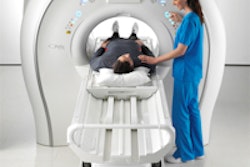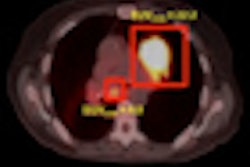More than two years after the U.S. Department of Energy (DoE) selected GE Hitachi Nuclear Energy (GEH) to develop a new technology for producing the radioisotope molybdenum-99, the company has decided not to proceed with the project, saying it is not economically feasible at this time.
GEH is nearing completion of its work under the first phase of a cooperative agreement with the DoE's National Nuclear Security Administration (NNSA) to study the potential use of a commercial reactor to produce molybdenum-99 (Mo-99) without the use of highly enriched uranium. NNSA provided $2.25 million to GEH for the initiative.
As recently as September 2011, GEH began to explore the feasibility of producing Mo-99 at a nuclear power plant operated by Exelon in Clinton, IL. The company's Clinton Power Station currently manufactures the isotope cobalt-60 for use in other medical treatments.
However, GE Hitachi has chosen not to move forward with the next phase of the project.
"While GEH and our utility partner have confidence that large quantities of molybdenum-99 could safely be produced in a boiling-water reactor, the financial projections for Mo-99 production do not support the remaining cost to partner with a processor and embark on the phase 2 program to complete development," explained GEH spokesperson Michael Tetuan in an email to AuntMinnie.com.
Work on the project has been archived by the company's engineering staff, should the project be revived, Tetuan added.
"Over the next several years, as the current test reactors that produce Mo-99 are taken out of service, and the demand for Mo-99 grows, the information developed in phase 1 will enable GEH to re-examine the viability of continuing with the second phase of the program," Tetuan said.
GEH was created by parent company General Electric of Stamford, CT, and Tokyo-based Hitachi in 2007 as a joint venture to serve the commercial nuclear energy industry worldwide with materials, equipment service, engineering, and technology. The company also has agreements with NuView Life Sciences' facility in Denton, TX, and NorthStar Medical Radioisotopes' facility in the city of Beloit, WI, as potential Mo-99 processing sites.
Members of the nuclear medicine community have been advocating for the past several years for the creation of a U.S. supply of Mo-99. Currently, the U.S. depends primarily on Atomic Energy of Canada's (AECL) National Research Universal (NRU) nuclear reactor in Chalk River, Ontario, for the radioisotope.
In October 2011, the Canadian Nuclear Safety Commission renewed NRU's operating license through 2016, but it also required AECL to address aging infrastructure and weaknesses in maintenance programs that have resulted in a number of radioactive leaks at the 54-year-old facility.
Additionally, the American Medical Isotopes Production Act of 2011 is being considered in the U.S. House of Representatives following U.S. Senate passage of the bill last November.
The proposed legislation would support the development of a U.S. supply of Mo-99 to produce technetium-99m and reduce U.S. reliance on foreign sources, gradually eliminate U.S. export of highly enriched uranium over the next 14 years, and promote the production of Mo-99 from low-enriched uranium.



















